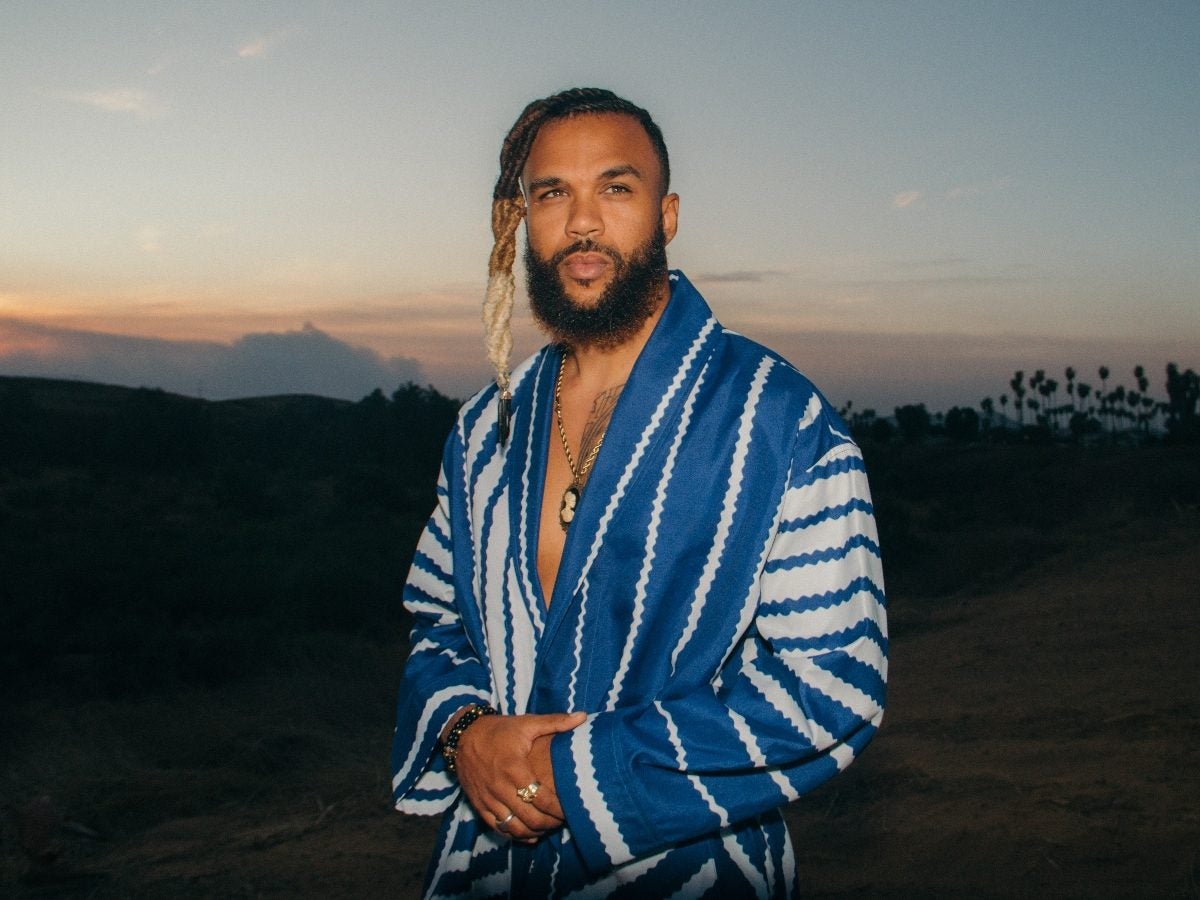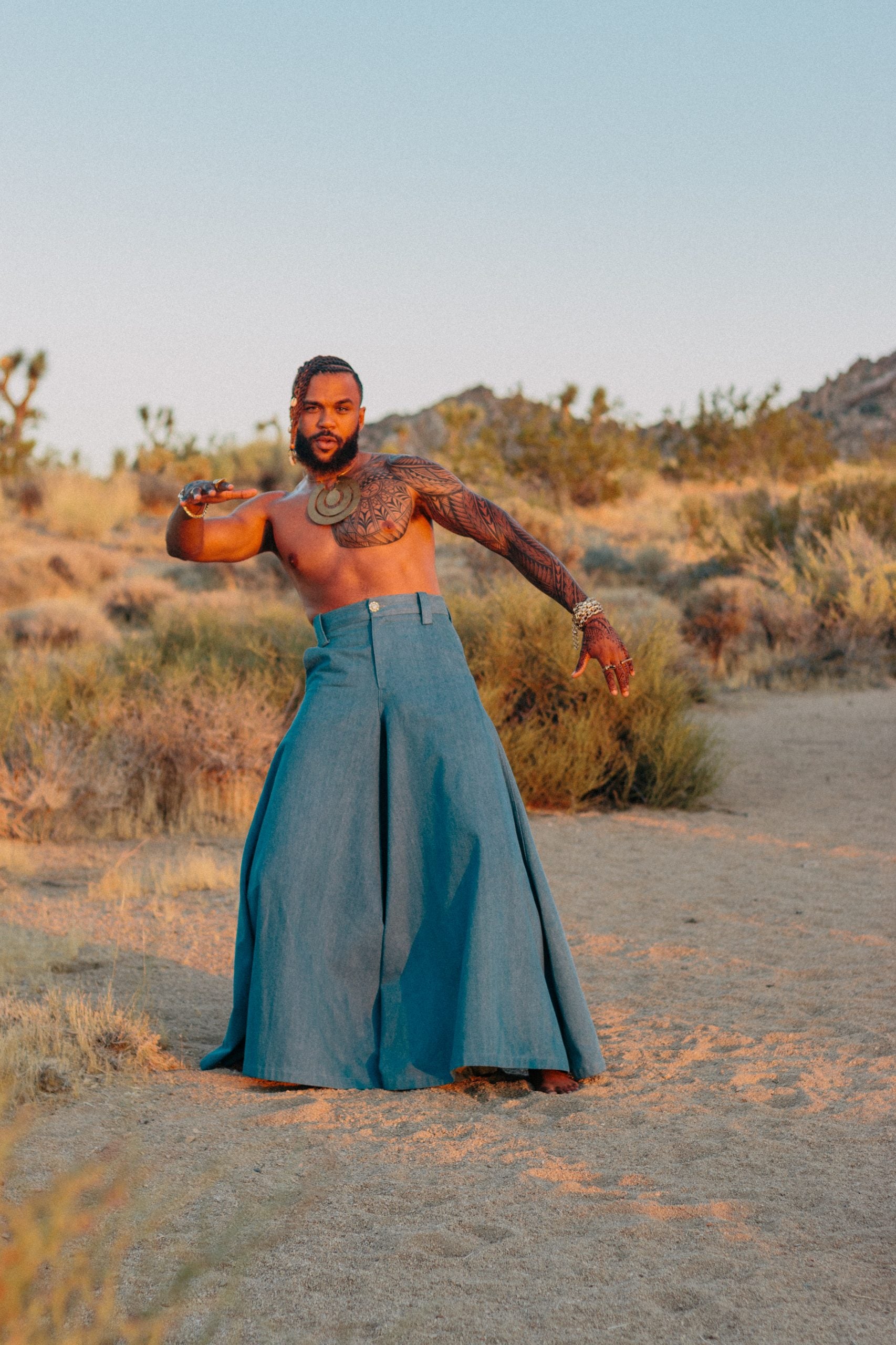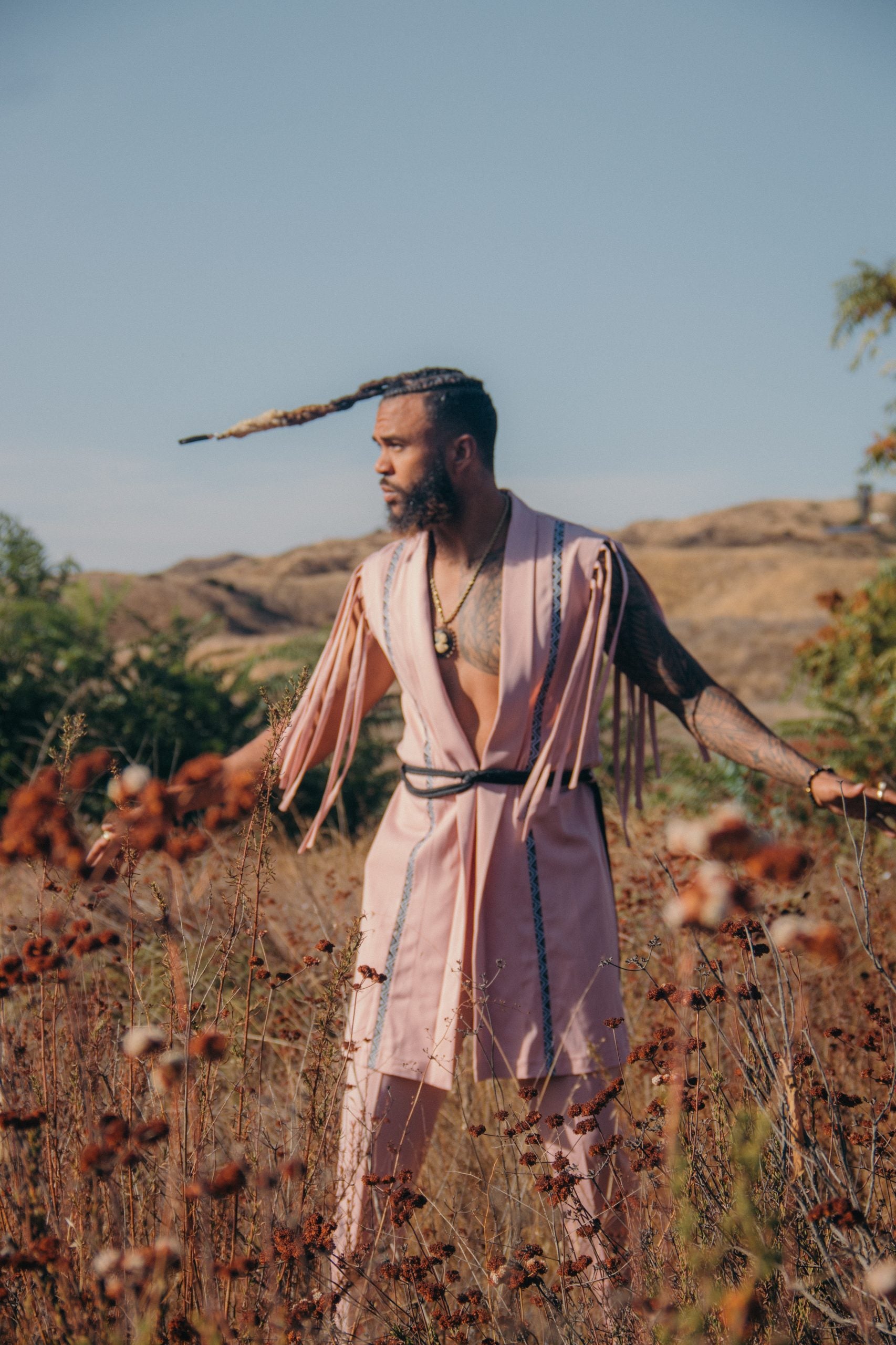
In 2019, Black people across the diaspora returned to Ghana to commemorate the 400-year anniversary of the first time men and women were taken from West African shores and enslaved across the world.
For many who weren’t able to make the pilgrimage, there might have been some FOMO. And they vowed to make the journey in 2020. But COVID had other plans. Travel to the continent might not be entirely safe just yet, but Birthright AFRICA has begun accepting applications from people ages 13-30 who would like to return to the birthplace of civilization and connect with their history in the new year.
The organization, founded by Walla Elsheikh and Diallo Shabazz in 2015, has partnered with Grammy-nominated artist Jidenna, who will journey with accepted scholars to Ghana in 2022.
ESSENCE caught up with Jidenna to discuss his partnership with Birthright AFRICA, what scholars can expect from the journey and the healing that can take place on the continent.

ESSENCE: Why did you partner with Birthright AFRICA?
Jidenna: Their mission is in complete alignment with my own. I firmly believe that one of the crises for people of African descent is a crisis of identity and self worth. Specifically in the US, we have an interesting relationship with Africa because we were hypnotized and brainwashed. I think Birthright AFRICA is a major step for Black people globally and Black Americans here to start to repair, re-heal and reimagine what our identity is as Black people by centering it around not the US of A–surprise surprise–but ourselves wherever we are and also around the continent of Africa. That will have a major shift in our development as a global people.
ESSENCE: People who are conscious enough to want to visit Africa might also have unrealistic expectations about how they’ll be embraced. How do we temper our expectations but still be open to what we can learn by visiting the continent?
Jidenna: Every time you travel, the way you’re received, your experience is dependent on the people you travel with and where you go. The same rings true with Africa. I always remind people colonialism has done a hell of a job in terms of the damage of education on the continent as far as what the history was. A lot of people don’t know the history of slavery on the continent, let alone African American or Caribbean history.
Luckily and this is the silver lining– if you do go to Ghana or Nigeria–where a vast majority of Black Americans and Caribbeans are from, there’s not necessarily a welcoming party if you go alone but if you come with Birthright AFRICA, there is.
The beauty of coming with BIRTHRIGHT is that you will be embraced. You’ll realize that the Southern hospitality that we’re told about as a youth–there’s also such a thing as African hospitality.

ESSENCE: How have your experiences been traveling back to Nigeria from before you were famous?
Ha! Very different than after. My family it’s all love. It’s always good seeing my cousins, aunties, uncles. I had to get used to a difference in swagger. I had locs and they said, [In a Nigerian accent.] ‘What’s this? You are looking homeless. Nigerians, we don’t wear that.’
I was definitely teased. They called me Akata–it’s a phrase for African Americans, basically saying I’m not one of them.
If I meet somebody at a bar and tell them I’m Nigerian, they’ll be like, ‘No you’re not.’ But when I tell them where I’m from, that I lived there, all of a sudden it’s a warm embrace. But that banter–initiation that I went through makes me an ideal person to be a bridge builder. I am both Black American and Nigerian American, in terms of identity. I feel close to both. So I completely understand what it’s like to be both welcomed and pushed away at the same time.
It’s literally just tough love. Everybody does that. Let me check you. See what you know.
ESSENCE: What else can people expect traveling to Ghana with you and Birthright AFRICA?
Jidenna: Great food. They can expect to see people who look like they cousin but don’t talk like their cousin. They can expect to go party later than they ever would out here. They can expect to go really have a life-changing experience by going to the slave castles. I’ve never felt that energy in my life. It’s overwhelming. So they’re going to cry and laugh.
They’re going to get an education. It flips your whole mind.
There’s also healing in what you’ll learn. You’ll learn that in modern day Ghana, people were coming to take their families out of the slave castles. That just shows how many people were fighting against this form of slavery once people got hip to it.
Everybody had slavery. But this European chattel slavery was different. Just seeing that completely defeats the myth that your own people sold your family into slavery. It wasn’t that simple.
Just like you hear about the slave rebellions here in America, the same was true in Ghana. Yaa Asantewaa–women led across West Africa, especially when the men didn’t want to fight. The women always took up arms. You learn those kinds of stories and they change your perspective. That’s a healing for someone who was taught ‘You got sold by your brothers and sisters.’ There were people who were money hungry, which we have everywhere in the world. But your brothers and sisters were fighting for you.
You can learn more about Birthright AFRICA and apply for the 2022 trip here.
Photography | Brooklyn Prewett